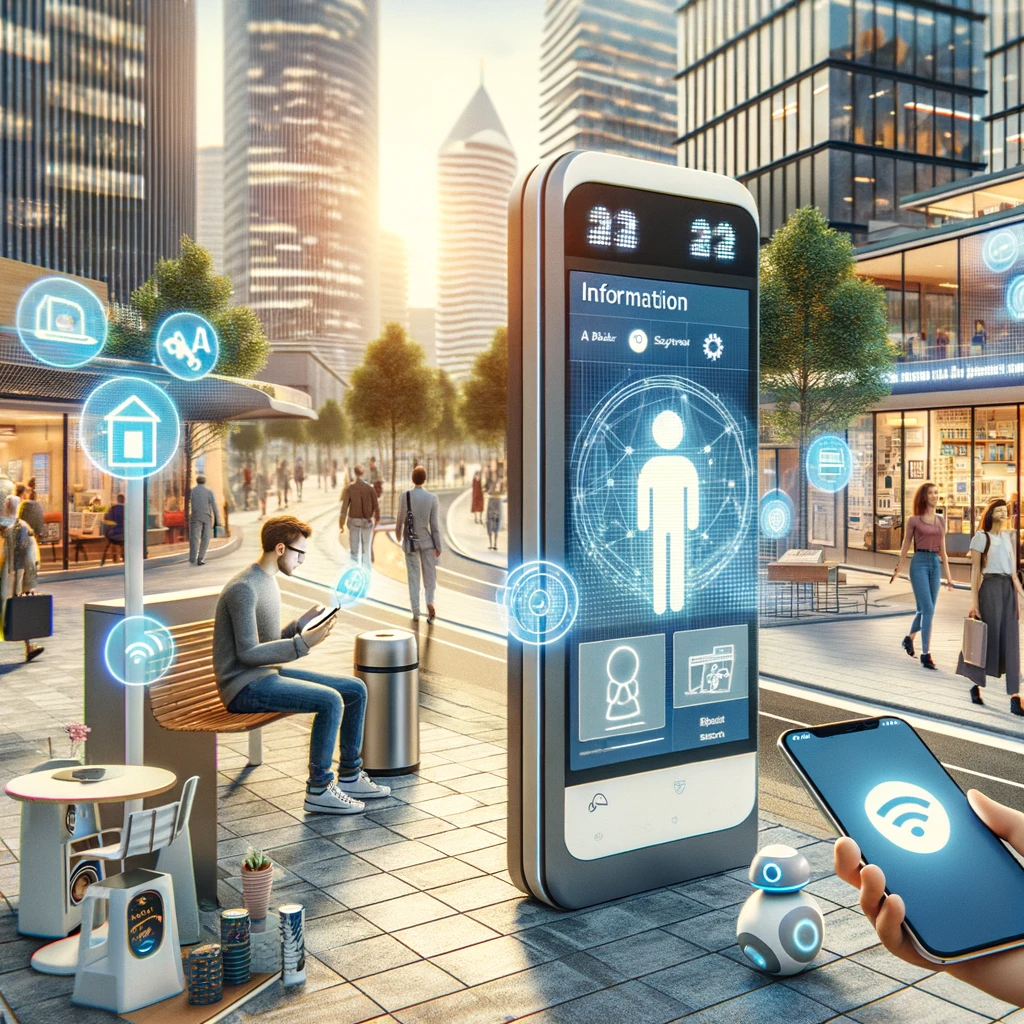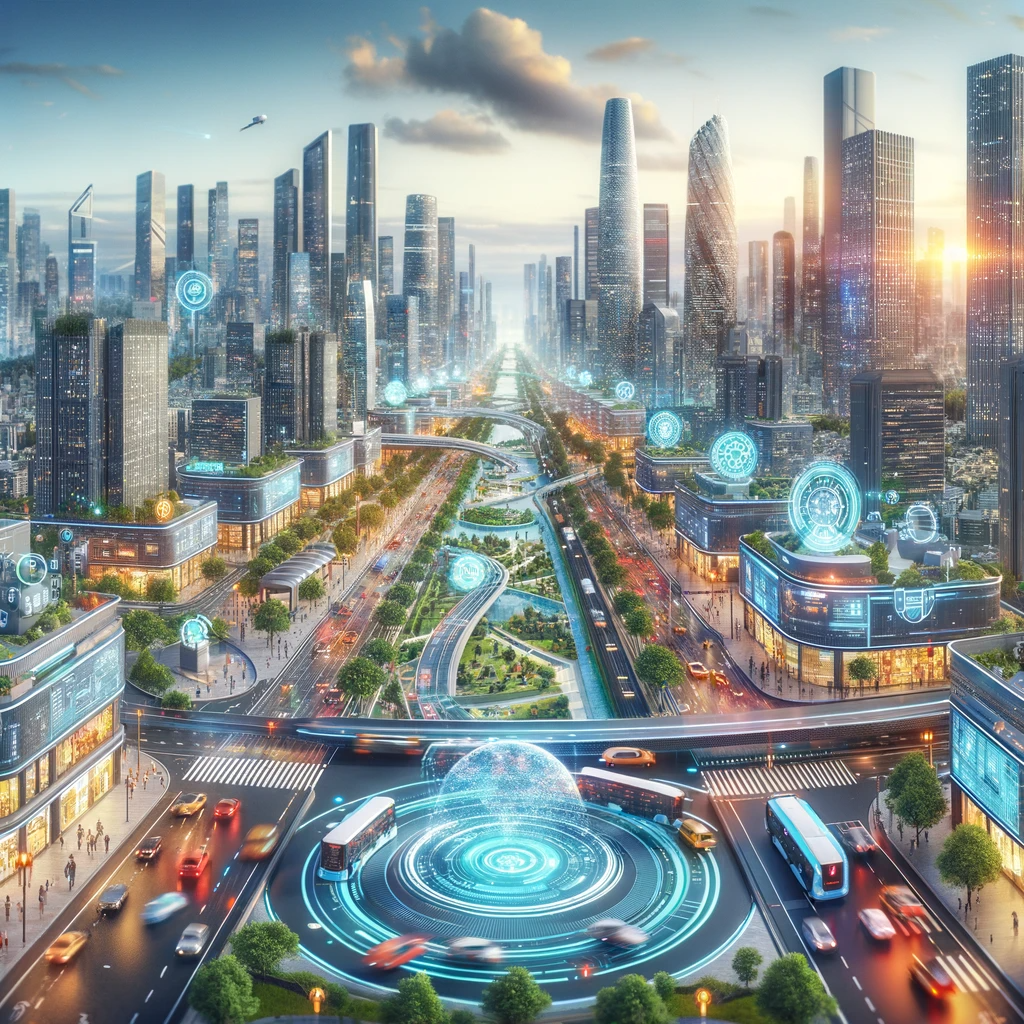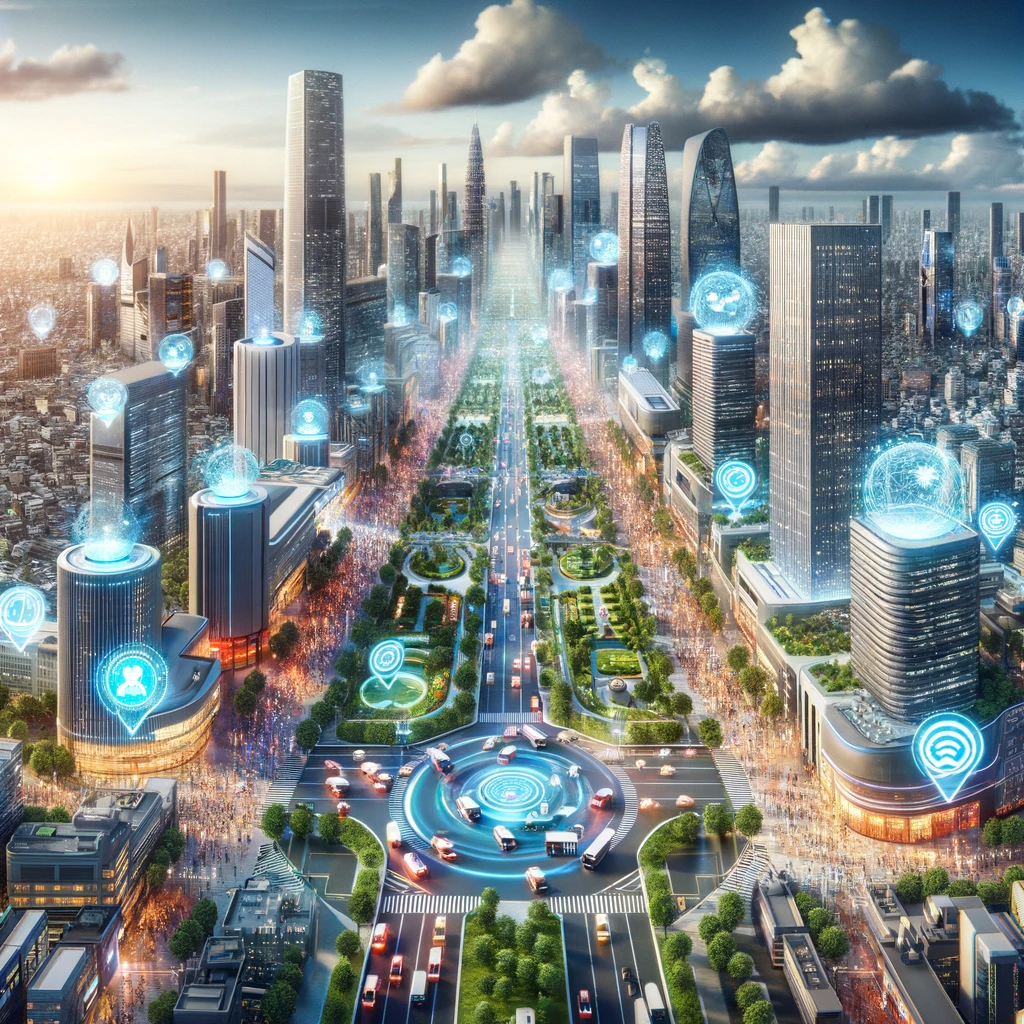AI’s Pivotal Role in Smart Cities
In today’s fast-paced world, the concept of smart cities has emerged as a beacon of innovation and progress. Smart cities leverage advanced technologies to enhance the quality of urban life, streamline services, and promote sustainability. At the heart of this urban transformation lies Artificial Intelligence (AI), a powerful tool that has the potential to revolutionize the way cities operate, serve their residents, and plan for the future. In this article, we embark on a journey to explore how AI is driving the evolution of smart cities and reshaping the urban living landscape.
The Smart City Vision
Before delving into the role of AI, let’s first understand the broader vision of smart cities. The idea behind smart cities is to harness cutting-edge technologies to make urban areas more efficient, sustainable, and livable. These cities aim to provide better services, manage resources wisely, reduce environmental impact, and enhance the overall quality of life for their residents.
AI as the Brains Behind Smart Cities
One of the key components of smart cities is their ability to collect, analyze, and act upon vast amounts of data. This is where AI comes into play. AI systems, powered by machine learning algorithms and real-time data processing, are adept at making sense of the data deluge generated by cities.
For instance, in transportation, AI can optimize traffic flow by analyzing real-time traffic data and adjusting traffic signals accordingly. In healthcare, AI-driven predictive analytics can help city authorities allocate healthcare resources efficiently by identifying potential disease outbreaks or areas with a higher risk of accidents. In energy management, AI can monitor and control the consumption of electricity, water, and other resources, ensuring they are used efficiently.

Enhancing Urban Mobility
One of the most noticeable impacts of AI in smart cities is the enhancement of urban mobility. Traffic congestion has been a longstanding issue in cities worldwide, leading to wasted time, increased pollution, and frustrated commuters. AI-powered traffic management systems offer a promising solution.
Smart traffic lights equipped with AI algorithms can adapt to traffic conditions in real time. They can prioritize the flow of vehicles at intersections, reducing congestion and minimizing waiting times. Additionally, AI can facilitate the development of autonomous vehicles, which have the potential to drastically reduce traffic accidents and increase the efficiency of transportation systems.
Efficient Resource Management
AI’s ability to analyze and predict resource consumption is a game-changer in urban resource management. Cities consume massive amounts of energy, water, and other resources, and ensuring that these resources are used efficiently is crucial for sustainability.
AI-based systems can monitor resource usage patterns and adjust them in real time. For example, in energy management, AI can analyze electricity consumption data and optimize lighting, heating, and cooling systems in public buildings to reduce energy waste. In water management, AI can detect leaks in water distribution networks, reducing water loss and saving costs.
Revolutionizing Public Services
AI is also reshaping the way public services are delivered in smart cities. Chatbots and virtual assistants powered by AI are becoming increasingly common in municipal websites and apps. Citizens can interact with these AI-driven interfaces to get information, report issues, or access services more conveniently.
Moreover, AI-driven analytics can help city governments make data-driven decisions. For instance, AI can analyze crime data to predict areas with a higher risk of criminal activity, enabling law enforcement agencies to allocate resources more effectively and prevent crime proactively.
AI and Environmental Sustainability
Another critical aspect of smart cities is their commitment to environmental sustainability. AI plays a pivotal role in achieving this goal. For example, AI can monitor air quality in real time, detecting pollution spikes and alerting authorities to take immediate action. Additionally, AI-driven waste management systems can optimize garbage collection routes, reducing fuel consumption and emissions.
AI can also contribute to urban planning by analyzing data on land use, population growth, and transportation patterns. This data-driven approach helps city planners make informed decisions about infrastructure development and land use, ensuring that cities grow in a sustainable and organized manner.
Challenges and Concerns
While AI holds immense promise for smart cities, it is not without its challenges and concerns. Privacy and data security are primary concerns, as the collection and analysis of vast amounts of data can raise questions about individual privacy and data protection. It’s essential for cities to implement robust data governance and security measures to address these issues.
Moreover, the digital divide remains a challenge. Not all residents have equal access to technology and digital services, potentially leaving some communities behind in the smart city transformation. Efforts must be made to bridge this gap and ensure that the benefits of smart cities are inclusive.

Conclusion
In conclusion, AI is undeniably the driving force behind the evolution of smart cities. Its ability to process data, optimize systems, and enhance decision-making is transforming urban living, making it more efficient, sustainable, and livable. However, it’s crucial to navigate the challenges and ethical considerations associated with AI in smart cities to ensure that these technological advancements benefit all residents and lead to a brighter urban future. As technology continues to advance, we can expect smart cities to become even smarter, improving the lives of countless urban dwellers around the world.
